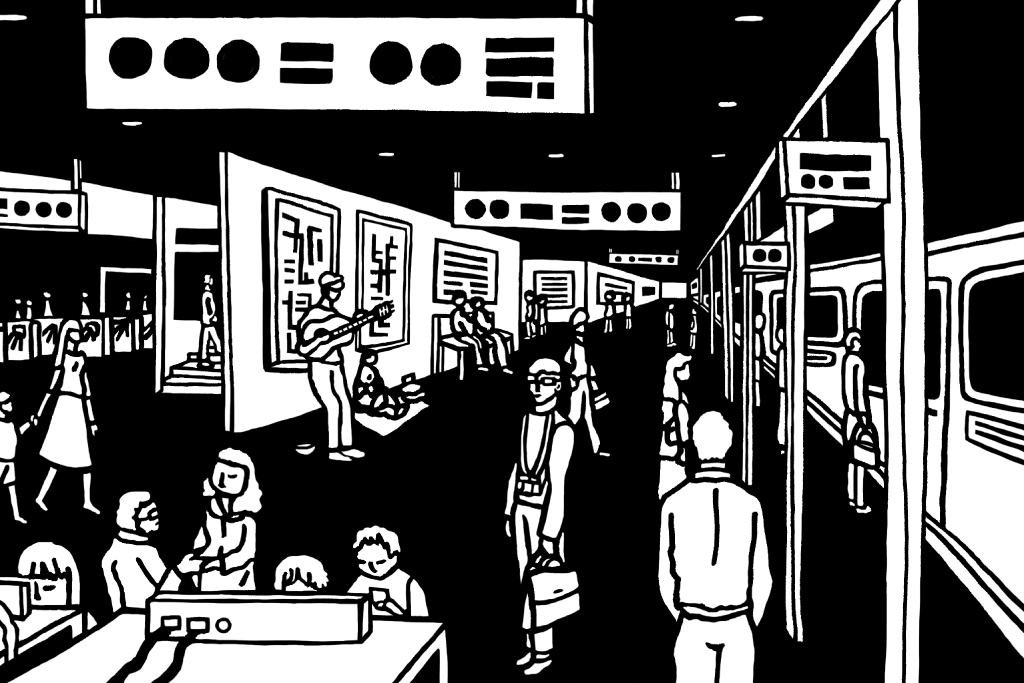
Every time I think about language, the opening lines of Jack Gilbert’s “The Forgotten Dialect of the Heart” immediately come to mind:
How astonishing it is that language can almost mean,
and frightening that it does not quite. Love we say,
God, we say, Rome and Michiko, we write, and the words
get it wrong.
It’s unsurprisingly easy to take the language we use on a daily basis for granted. It’s equally easy to fall victim to the erroneous belief that we know everything there is to know about our native or first language because we are used to it, comfortable with it, and able to manipulate it. But as Gilbert contemplated through his poem, there are gaps in the thing we use to communicate with and to others. Unless one is a trained linguist, comprehending one’s own mother tongue turns out to be more difficult than it seems. Now, imagine the challenges that we would have to face when dealing with the languages of others.
When travelling to a place where people speak a language that has little to no similarities to the one back home, it is only natural to panic. A friend once told me that not being able to speak the language of the country one plans to spend some time exploring is the same as having no power. Even the most basic inquiries, like asking for directions, can get unnecessarily complicated. Travelling polyglots are probably exempt from such frustrations, but most of us would definitely have to put in some extra effort to get around. As I mentioned in my previous article, the importance of travelling lies in the fact it exposes us to new experiences. Linguistic experience – or the lack thereof – is certainly included. The presence of an unfamiliar language in an unfamiliar place is virtually impossible to escape because not only is it audible, but it is also visible – especially in countries such as Japan, China, Korea and Thailand, where the languages’ respective writing systems are so intricate they make you want to pull your hair out.
Extreme differences aren’t always the source of frustration when it comes to language barriers. On a recent trip to Singapore, I was in a taxicab when a radio show conducted in a mixture of English and Mandarin came on. I don’t speak Mandarin, so I was only able to register the English parts, but even those parts required a great deal of concentration to digest. Many countries have developed their own version of English – Indonesia is no exception – but it wasn’t the localness of the radio host’s English dialect that made me eager to listen closely; it was precisely the mixture of English and Mandarin. It turns out that an unusual combination of something familiar and something new has the power to trigger an unexpected sense of disorientation. The sensation may be uncomfortable at first, but it has the positive effect of forcing – or rather, motivating – us to be more attentive to everything and to not underestimate anything.
A person’s ability to pay attention during a trip becomes all the more essential as it is connected to time. Even the most relentless pedants would have to forget about proper syntax in order to communicate. The goal here is not poetry; the goal is communication. Most of us don’t have the time or even the will to master the language of a country we want to visit. Guidebooks that consist of basic phrases and vocabulary usually come in handy, and these days, we also have the luxury of Google Translate and even techy smartphone tools that scan foreign words and instantly provide a translation – even if they are not always reliable. But even modern wonders are no match for the passing of time – and oh how time passes during a getaway. With so many new things stimulating the mind, one has to find ways to filter information within a limited period of time. We must learn how to communicate efficiently and effectively.
One way to see through the layers of a foreign language is by observing gestures. Gestures are also a language, but unlike spoken language, they can be studied without having to engage in a conversation. Like verbal language, gestures have their own distinct vocabulary that is not instantly understandable – e.g. the meticulous bowing variations of Japan – but I believe it’s possible to crack their code by paying attention to context. How do people greet each other here? Do they shake hands or nod to each other? Do they kiss each other one cheek or bump cheeks twice? By observing such exchanges, it is also possible to learn the local culture. How comfortable are people with physical interaction? Is there a difference between the way they greet friends and casual acquaintances? Even if we are truly struggling with the local language, we can implement a recently learned gesture – like a nod or a bow – before asking a question or simply greeting in English or a common regional language to a local resident. A simple gesture can turn into a huge victory – that is, if we manage to get it right.
But sometimes I think to myself if being linguistically unprepared for a trip can actually make the adventure more, well, adventurous. Knowing a few words and phrases may save us from getting lost or being embarrassed by an innocent mistake, but wouldn’t that knowledge automatically kill the possibilities of having unique experiences to remember and laugh at in the future? Obviously, language is not the only ticket to enter a new cultural experience, but what if language turns out to be an important factor that determines whether or not a person remains curious about a particular country and all it has to offer? I believe that travellers strive to strike a balance between protecting a personal fantasy and accepting the blandness of reality. Some places are not that magical once they have been explored, and languages do a great job at revealing the normal-ness of even the most mystified cultures. I think it’s crucial to ask ourselves why we even bothered to leave our homes in the first place. Do we want to try to know as much as we can about the places we visit, or are we content with a delicious local dish and picturesque sceneries?











